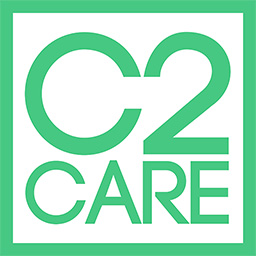What is a phobia?
Are you unable to overcome your phobias? Do many situations make you anxious and spoil your daily life?
The root of the word “phobia” comes from the ancient Greek phóbos meaning fear or dread. It is the embodiment of fear. These are universal feelings that are part of a normal mechanism from childhood. We have all been afraid of something, whether it is the dark, spiders or the void… This is an essential part of our survival, these symptoms are present to protect us but should not hinder our daily life. If you are phobic, your fears become excessive, persistent, invasive and often irrational towards a situation or an object. You may then panic and develop avoidance strategies so that you do not come face to face with the object of your fear. This is a difficult situation that can impact your social life. If this is the case, do not feel guilty, get help, you are not alone. There are many solutions to help you in your daily life.
Three categories of phobias are distinguished: specific phobias, social phobia and agoraphobia.
- In the specific phobia, also called “simple phobias”, as its name indicates, the anxiety is carried on a clearly identified object. These phobias are most often related to animals, blood, injuries, but also to natural environments such as heights (acrophobia), places where it is difficult to escape (claustrophobia) or even isolated driving. In all, there are more than 6000 simple phobias.
- Social phobia is a fear found during activities where individuals are afraid of feeling humiliated, tormented by the judgment of others, or speaking in public (glossophobia). Individuals who suffer from it have difficulty establishing a relationship with others. They report an impoverished quality of life and struggle to obtain daily sources of satisfaction. However, their anxiety and avoidance behaviours tend to decrease when they are accompanied by a loved one.
- The agoraphobic person is usually afraid of being locked up, of going to department stores or of moving in a crowd… This may or may not be accompanied by a “panic disorder”. This is what makes it specific and isolates it from the other two categories of phobia.
What causes phobia?
The appearance and development of phobias can find their origins :
- In the family environment: There are no studies that have shown that the development of a phobia is linked to a genetic factor. However, parents can pass on anxieties to their child in a conscious or unconscious way. Indeed, if your parents regularly tell you to “be careful when you go on the balcony, because it is dangerous, you can fall if you make a mistake…”, you will have a greater risk of developing a phobia of heights (acrophobia).
Specific phobias can also be related to a traumatic event. For example, if you are on the highway and you are involved in a serious car accident, this can cause a trauma, which will encourage the development of a phobia of driving on the highway (amaxophobia).
Agoraphobia can develop progressively without panic attacks or as a result of numerous panic attacks. Most of the time, it develops before the age of 40.
Social phobia can develop as a result of situations experienced as traumatic (e.g. mockery by peers) or as a result of observing the behavior of others (e.g. witnessing mockery). Most of the time, social phobia develops during childhood.
What are the symptoms of phobia?
In all cases, anxiety is present when individuals suffering from phobias are confronted with the object of their fear. It can be accompanied by emotional (fear, shame), behavioral (avoidance), cognitive (anticipatory anxiety, feeling negatively judged and/or rejected) and attentional symptoms (automatic focus on danger signals). The most frequent somatic symptoms can be heart palpitations, tremors, excessive sweating, muscle tension, stomach aches…
When to consult when suffering from a phobia?
What if you stopped depriving yourself of social evenings, of plane trips you’ve always dreamed of going on, of avoiding pigeons in your path…? Do not wait any longer and dare to contact a health professional. Many non-medicinal therapies are gentle, reassuring and very effective to overcome your fears. There are several ways to get rid of a phobia. Among the most successful therapies are cognitive-behavioral therapies and virtual reality therapies. But other types of therapies exist and can correspond to you, such as music therapy, hypnosis, sophrology… This site will allow you to find the health professionals you need with the possibility of being taken care of near you!
In any case, it is important to take care of yourself and to consult a health professional in order to reduce or even make your phobia disappear. You must not let it take over and suffer the consequences of an untreated phobia.
Bibliography :
- Faytout, M., & Swendsen, J. (2009). Social phobia and daily life. Journal of Behavioral and Cognitive Therapy, 19(3), 88-92.
- Cottraux, J. (2007). Behavioral and cognitive therapies. Masson
- Fontaine, O. et Fontaine, P. (2007). Clinical Guide to Cognitive Behavioral Therapy. Retz
- Pedinielli, J-L. et Bertagne, P. (2009). Phobias: agoraphobia, social phobias, simple phobias. Armand Colin


